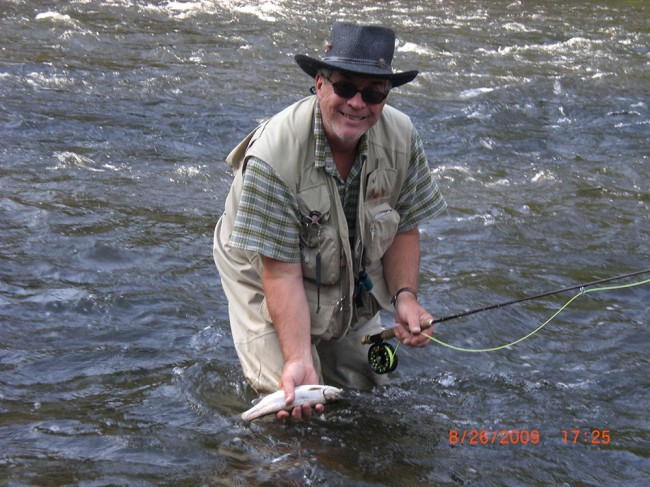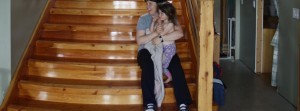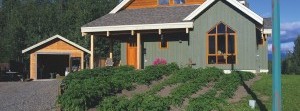
Photo Credit: Submitted
On the Fly: The Blackwater River
The Blackwater, or West Road River, is not only one of our Canadian heritage rivers, but is also a world-class trout fishery. It also has a connection to Alexander Mackenzie, the first European explorer to enter the Interior Plateau of present-day British Columbia and the first European to discover a route to the Pacific Ocean. In 1793, aided by Carrier First Nations guides, Mackenzie travelled the “Grease Trail,” a 400-km trading route, from the Blackwater River’s mouth at the Fraser River overland to its terminus at present-day Bella Coola. The Alexander Mackenzie Heritage Trail still exists today, and though you should be fit and hardy to attempt it, Mackenzie’s epic journey can still be made.
The Blackwater River can be accessed from two directions: west from Quesnel via the Nazko or Blackwater Roads, and south from Prince George via the Blackwater Road. There are several Forest Service campsites on the river: at the Blackwater Crossing Rec Site south of Prince George; at the West Road River Rec Site on the Nazko Road at Nazko Bridge; and finally at the Batnuni Bridge location on Batnuni Road. There are fly-in lodges situated on remote lakes in the upper reaches of the Blackwater, but for the most part this is a wilderness river that receives little fishing pressure because the access roads do not follow the river.
If you enjoy exploring and have a short wheel-base vehicle you don’t mind getting wet, muddy or dinged a little, there are horse trails and fire access roads along the river that will lead you into some lonely and remote trout-fishing locations on the river. Pick up a Backroads Mapbook—Chilcotin and you’ll see many of these trails leading to the upper Blackwater country that is laden with fishing that begs to be discovered.
If you like to drift rivers, the Blackwater provides several opportunities that are best challenged by experienced persons with pontoon boats or inflatable rafts: from Nazko Bridge to Gillies Crossing (14 km); Gillies Crossing to Batnuni Bridge (6 km); and from Batnuni Bridge to the Blackwater Crossing (20 km). The river system is Class 1 to Class 4 water, the last two drifts having some short canyon sections that usually require portages. I recommend hiring a guide or at the very least scout ahead and float with a buddy—rivers can change dramatically with each season.
Blackwater trout are not wary or leader-shy and love dry flies—the bushier the better: stimulators, orange and yellow; caddis flies tan, yellow and insect green; and mayflies, like the Adams in grey and tan shades. Nymph-fishing with stonefly or mayfly nymphs is always excellent, but I prefer the floating flies as the river is also chock-full of Rocky Mountain Whitefish and the odd sucker and I prefer to catch trout—although whitefish rising to dry flies is considered fair game. You might also run into the odd bull trout of 4-5 kilograms, so do streamer-fish the deep holes on the river.
The Blackwater system is Classified Water, requiring a CW license. It opens to fishing June 14th, is fly-fishing only, restricted to electric motors, and has a 1-fish limit. Enjoy the river—it’s special and will always be that way.





Hi There, I really enjoy the Northword magazine. Thanks for your hard work. I just came across this article, and am wondering if since 2015 when the article was published, if Northword has become a bit more sensitive to the use of colonialist language such as “discovered” that appears in the first paragraph. The narrative that Canada was an untouched and wild wilderness prior to the arrival of Europeans is false; the first people here were Indigenous groups and they traveled extensively for many reasons for thousands of years prior to the arrival of the European newcomers. The rest of the article is fine, but I think the first paragraph could have been revised to present a more honest perspective of the time period when Alexander Mackenzie was traveling in BC.
Respectfully,
Catherine
👤 catherine 🕔 Jul 03, 2017
I have the BRMB (Backroad Mapbooks) and it says that there are Northern Pike in the river and I couldn’t find anything about them online so I was wondering if there really are Pike in the river. I also really enjoy the Northword Magazine. Thank your for taking the time to write it
👤 Aubry 🕔 Jan 07, 2018